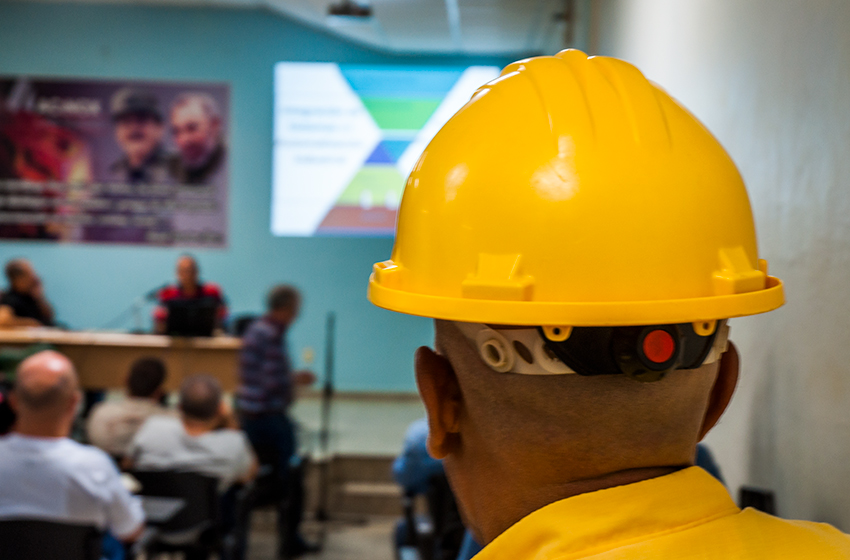
The ACINOX Las Tunas Stainless Steel Company takes concrete steps towards becoming a high-tech entity; this is demonstrated by its continuous support for a project to automate its production process, coordinated with various universities in the country and the creation of internal organizational structures to manage its scientific actions.
Las Tunas, Cuba.- Although the stoppage of much of the national academic activity caused by the COVID-19 delayed the initial schedule, it did not completely stop the research work of the initiative entitled Advanced Automation for the Manufacture and Refining of Steel (AA -Elacero), which seeks to reduce energy consumption in a key area of the plant, its coordinator Ph.D. Guillermo González Yero said.
Launched in mid-2018, in these months, said González Yero, the AA-Elacero remained active through contacts between the researchers from Las Tunas and their mentors; especially, thanks to the concern of the Ph.D. Israel Francisco Benítez Pina, who by the Department of Automatic Control of the Universidad de Oriente coordinates the Master of Automation.
"These days, said González Yero, four university professors will be at ACINOX Las Tunas to recover two of the four remaining courses within the teaching program." Also, he added, other academics will come to personally contact the researchers, to jointly evaluate the progress of the respective solutions to the detected technological problems, thus re-promoting each of the studies. At this moment, 15 investigations in the area of Automation, three in Industrial Engineering and two in Energy Efficiency are ongoing within this project.
“Each of these actions specifies what was agreed at the 2019 seminar, whose second edition should have taken place at the beginning of this year. The pandemic delayed those deadlines, but we did not stop completely. The defense of the first investigations must now conclude in the first half of 2021,” González Yero explained.
To its perennial commitment to carry out this project, which, if successful, would save the country 1.8 million dollars a year, ACINOX Las Tunas adds other movements in order to manage the science that is done there more organized. For this, since March, it established an Innovation Development Group, a relevant step also within the process of becoming a company in improvement. This group is made up of three experts led by González Yero himself.
ACINOX Las Tunas, he explained, has historically been a company recognized for the quality of its professionals, irradiating, even, other related entities of the Island, but lacked an organization at the level of what is required by the country. "The creation of the Development Group is going in that direction," he said.
The existence of this brotherhood already had its first positive repercussions in the economic planning of scientific activity, since, González Yero explained, the “budget classification for national programs, projects not associated with programs, activities, technological services, generalization services, and for other activities such as events and conferences were included in the 2012 economic plan.
It is even proposed that ACINOX Las Tunas be one of the co-sponsors of the 19th Latin American Congress of Automatic Control, initially scheduled from November 30 to December 4, 2020 in Havana and that the Covid-19 postponed to 2021.
Each of these steps would put the Las Tunas steelmaker in a better position to become a high-tech company in keeping with the Policy approved for that purpose by the Council of Ministers last year.
“The indicators of measures that allow becoming a high-tech company are not exclusively those of having made large investments or the installation of state-of-the-art technology. There are others related to the activity and the results of science, with the generation of new products and the reduction of costs from improved technologies. And that can only be achieved with a solid management of the science activity,” González Yero concluded.